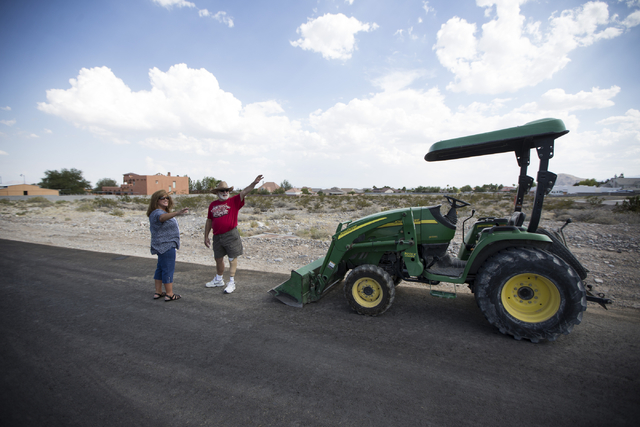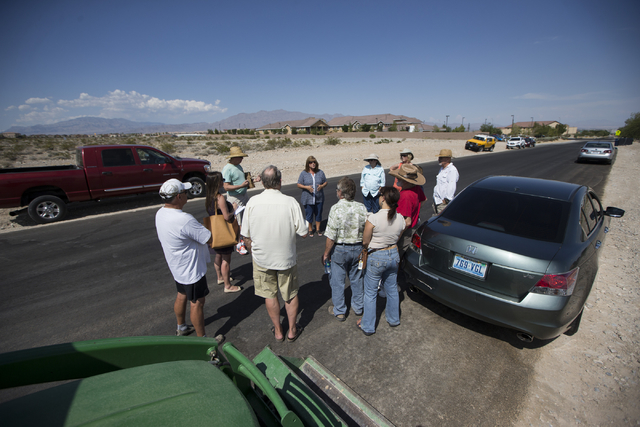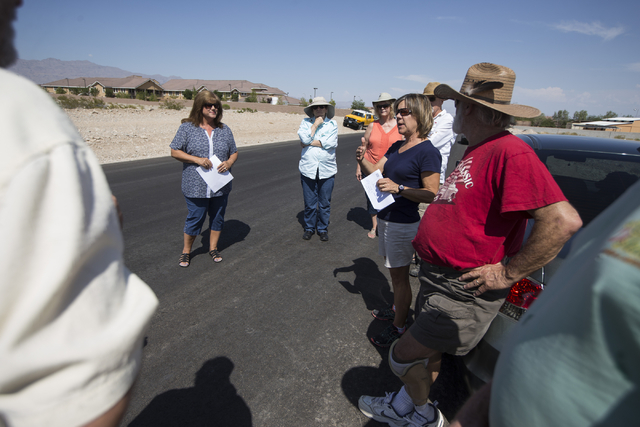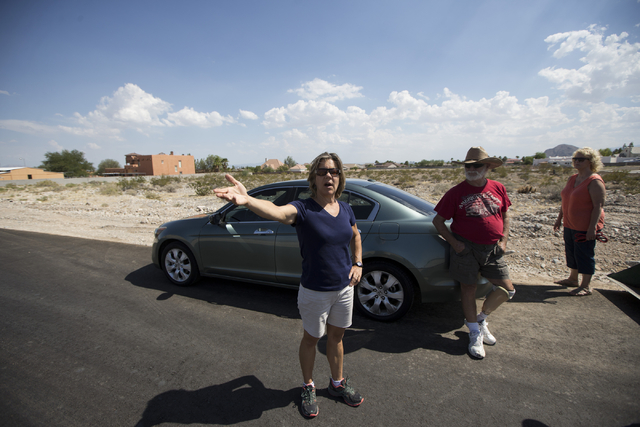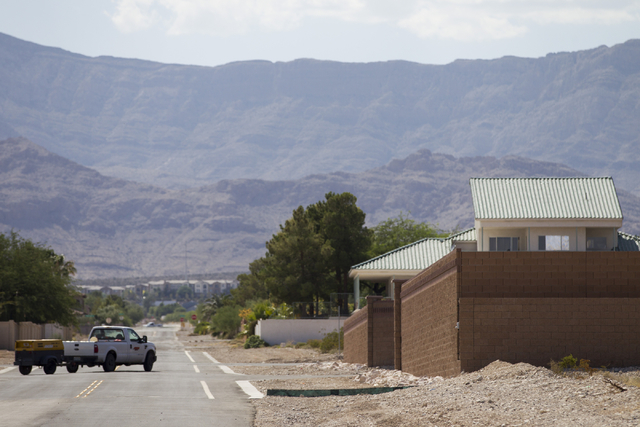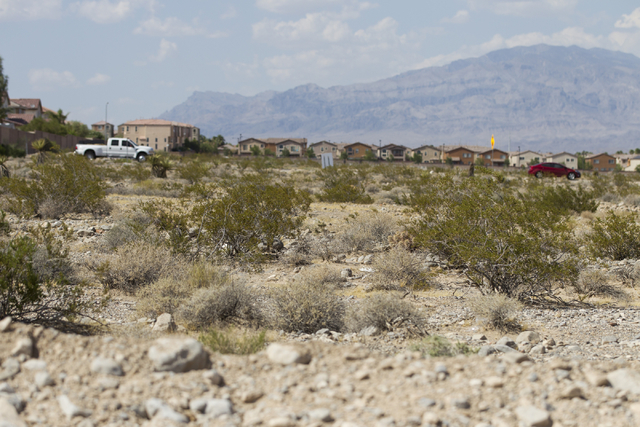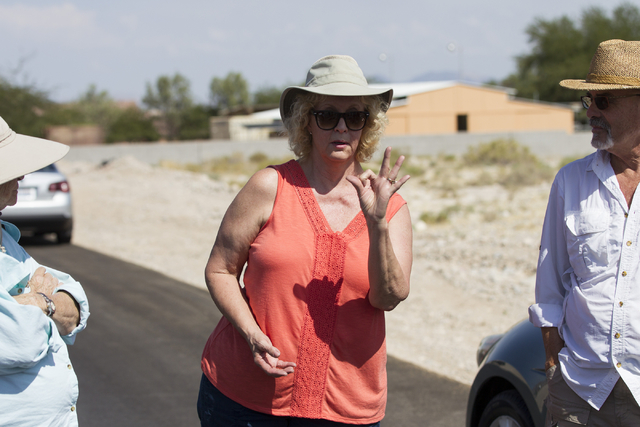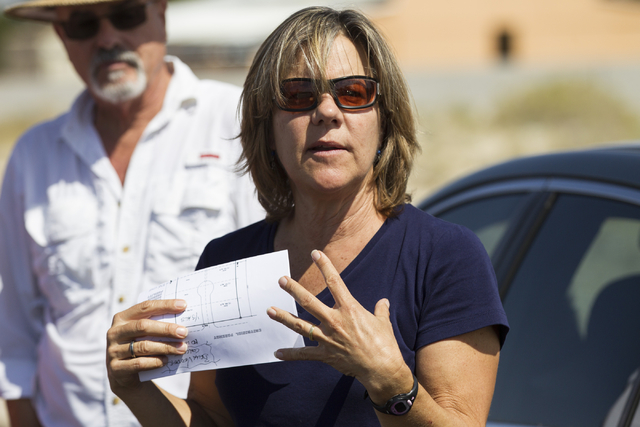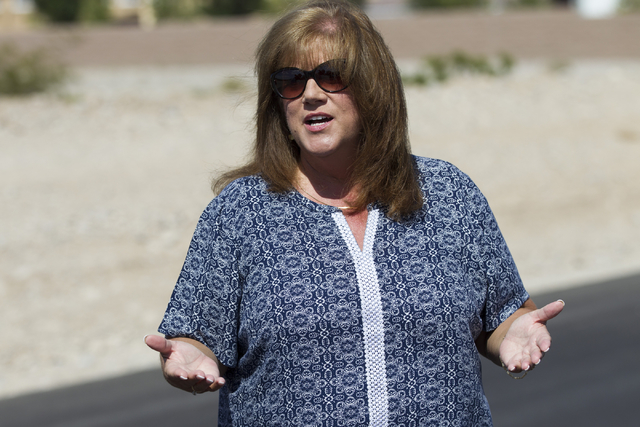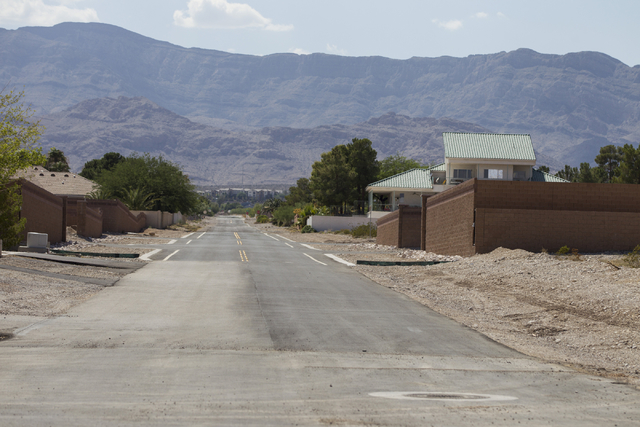County residents worry a nearby higher-density development would ruin their rural lifestyle
Randy Kidd recalls being able to ride horses right out his front gate when he bought his Clark County property in the 1990s — it reminded him of his native Texas.
Now Kidd and a number of his neighbors worry a proposed zoning change to a parcel across the street that would allow higher-density development will encroach on their rural lifestyle, and set a precedent for the area.

“There was nothing out here. Nothing,” Kidd said of the area in the late 1990s. “We had the whole world out here. It was so quiet.”
Kidd lives across the street from a 5-acre property whose northeastern corner is near the Centennial Parkway and Fort Apache Road intersection. The Las Vegas City Council approved the annexation in February, and the city Planning Commission is now considering a request to change the zoning classification from desert rural density residential to single-family residential, which would allow a denser development.
Right now, 11 homes could be built on the parcel. If the zoning change is approved, that would be upped to 24, according to a city staff report.
Neighbors worry about higher-density development bringing more traffic, streetlights and potential environmental degradation.
The nearby residents have sent the city protest postcards contesting the change, and a number of them attended last week’s Planning Commission meeting. The commission postponed acting on the zoning proposal until September at the request of the property owner, Randy Black, so he can meet with the concerned neighboring property owners beforehand.
An assisted living facility sits just east of the property. The property owners who oppose the zoning change live close to the site, but they’re in unincorporated Clark County, outside of the area the city has annexed.
City staff members have recommended the change be approved because the zoning district “conforms to the surrounding residential properties,” a staff report states.
Neighbors disagree and say they bought their properties because of the surrounding lower-density zoning.
“We invested in this neighborhood thinking this is what we’re getting, and then the rules change,” said nearby resident Heather Andrews. “We feel we have no representation because we’re in the county.”
In 2014, county staff had a preapplication meeting for a proposed 16-lot planned unit development on the same piece of property, which was then still unincorporated county land. That would have required a zone change to increase density, which “is generally not something that staff would recommend to be approved in that area,” county spokesman Erik Pappa wrote in an email.
Annexations have turned into a prolonged jurisdictional spat between the city of Las Vegas and Clark County. There are “islands” of unincorporated county land peppered through the city. A past agreement allowed county landowners to tie into the city’s infrastructure without becoming a city resident and paying the higher taxes that go along with that.
That agreement expired in 2014, and county officials say since then they’ve gotten hundreds of complaints alleging improper annexation of land by the city.
That expired interlocal agreement established certain development densities for different areas, even when the city annexes pockets of unincorporated county land, Clark County Planning Commissioner Donna Tagliaferri said.
“I find it very frustrating that we have to spend so much time trying to keep things the way people told us they would be,” Tagliaferri said.
County commissioners in July unanimously approved a measure setting up a process to determine whether those objections have merit, and possible remedies “for potential problems caused by the city’s actions or inactions.”
City Manager Betsy Fretwell wrote to commissioners before they took that vote, disputing that they have the authority under state law to proceed with the ordinance.
Nearby property owner Teresa Krolak-Owens said she and her neighbors aren’t against development, but they don’t think this zoning change is congruous with their neighborhood.
“We moved out here because this is the lifestyle we want,” Krolak-Owens said.
Beyond this particular property, there’s concern that this would establish a template “that can be stamped all over our area,” said Brian Vedder, who lives across the street diagonally from the parcel where the zoning change is proposed.
“We would see our rural lifestyle go up in smoke,” Vedder said.
Contact Jamie Munks at jmunks@reviewjournal.com or 702-383-0340. Find @JamieMunksRJ on Twitter.



